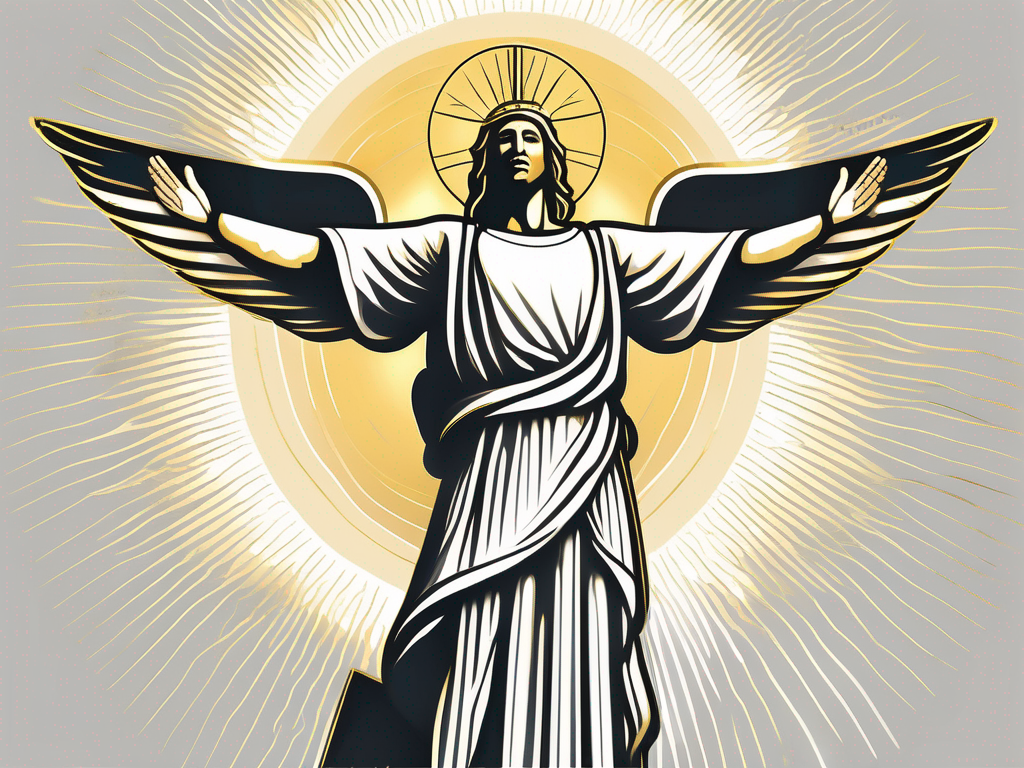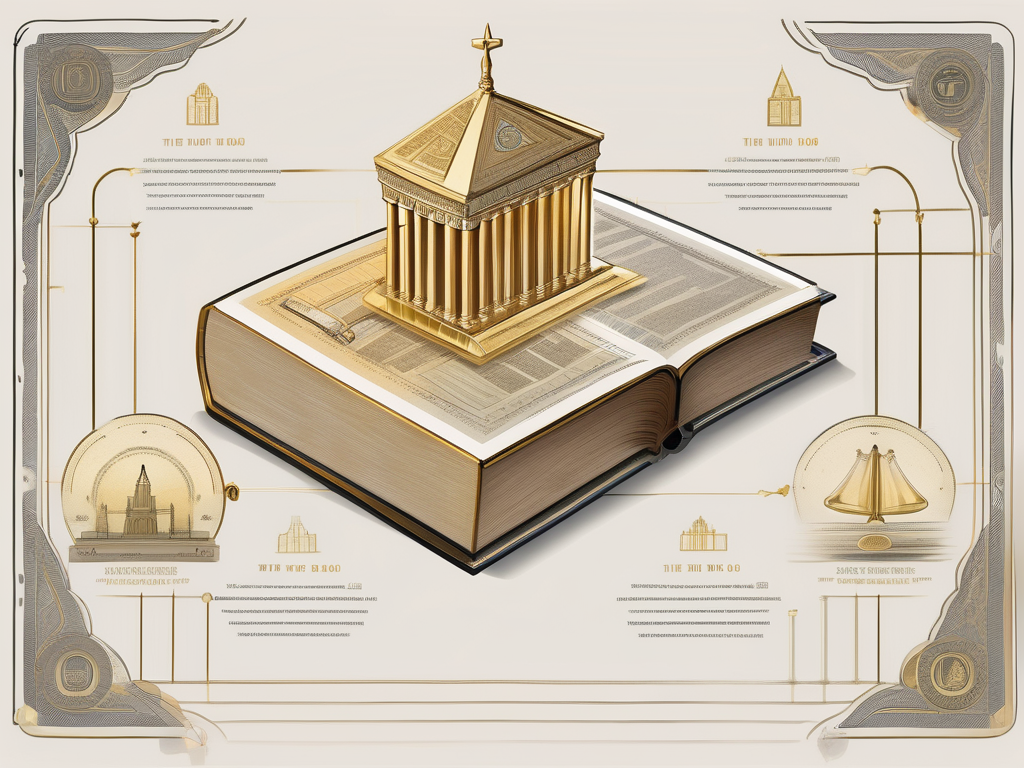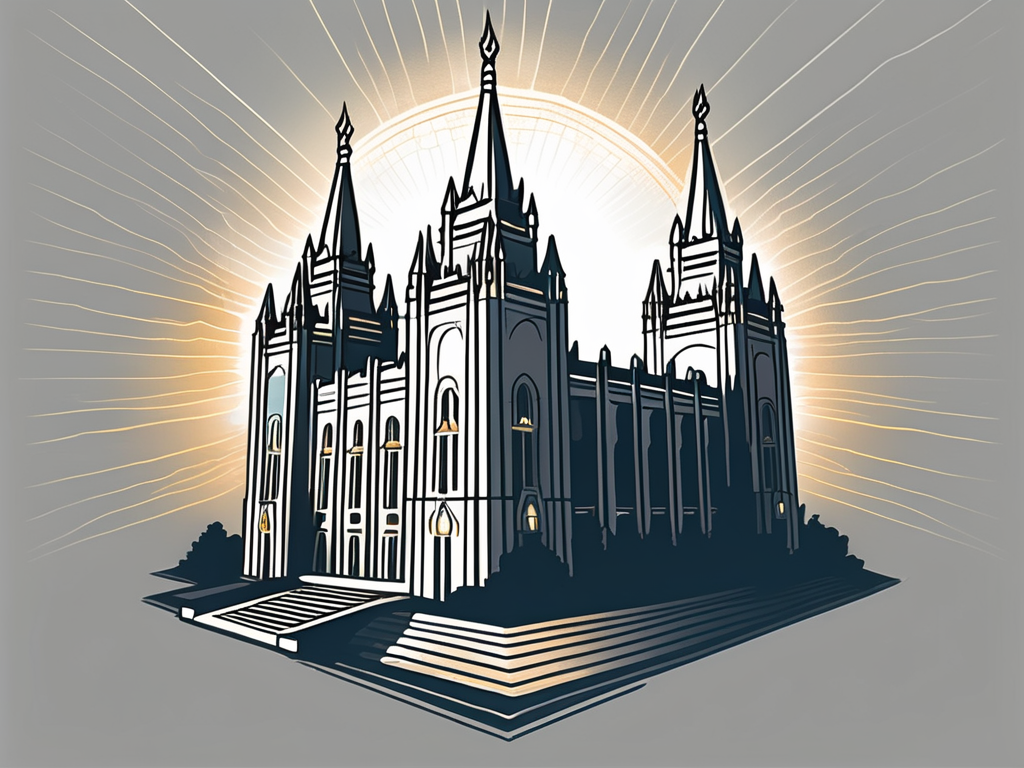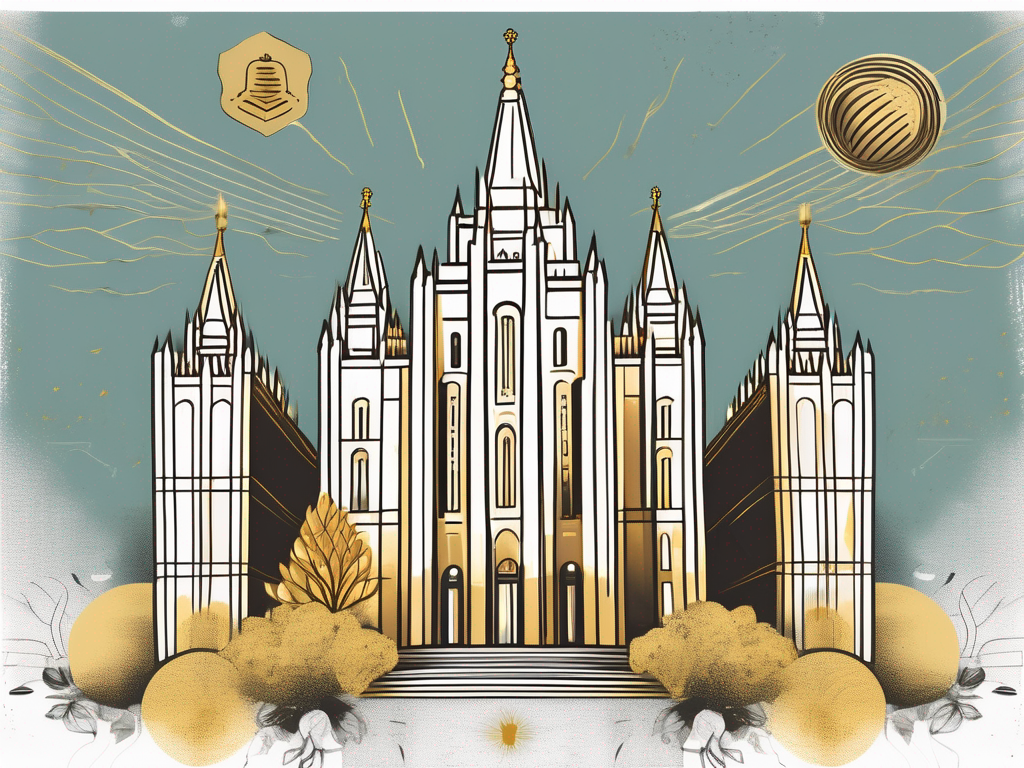Ah, coffee. For some, it’s an essential start to the day, a morning ritual that provides a much-needed jolt of energy. But for Mormons, the relationship with coffee is a bit more complicated. In this comprehensive guide, we’ll explore the history, doctrine, and modern stance of The Church of Jesus Christ of Latter-day Saints on coffee consumption. So grab a cup of your favorite beverage, and let’s dive in!
The History of Mormonism and Coffee
It all began in the early days of Mormonism. Joseph Smith, the founder of the faith, received a revelation known as the Word of Wisdom in 1833. This revelation provided guidance on healthy living, including advice on diet and substances to avoid. While the Word of Wisdom discouraged the use of alcohol, tobacco, and hot drinks, it did not specifically mention coffee.
However, the origin of the coffee prohibition in Mormonism came later, as the Church grappled with its growing influence and sought to establish a distinct identity. In the late 19th century, Church leaders began interpreting the Word of Wisdom to include coffee among the prohibited substances. This decision was not made lightly, as it required careful consideration of the potential impact on the members and the overall mission of the Church.
The Impact of Coffee on Mormon Society
The prohibition on coffee consumption had a significant impact on Mormon society. As the Church grew and spread across the United States and eventually the world, adherents had to navigate a world where coffee was a common and socially accepted beverage. This created unique challenges for Mormons, who had to find alternatives and explain their beliefs to others.
Key figures within the Church have played a role in shaping the views on coffee. Some have argued that it is the caffeine content rather than the beverage itself that should be avoided. They highlight the potential negative effects of caffeine on the body and the importance of maintaining physical and spiritual health. Others have maintained a strict stance against any kind of coffee consumption, emphasizing the need for obedience to Church teachings.
The Cultural Significance of Coffee in Mormonism
Understanding the Mormon stance on coffee requires delving into the cultural significance of the beverage. Coffee has long been associated with social gatherings, relaxation, and even intellectual pursuits. By abstaining from coffee, Mormons have created a distinct cultural identity that sets them apart from mainstream society.
The diversity of opinions within the Church adds to the complexity of understanding Mormon beliefs on coffee. While some members may strictly adhere to the prohibition, others may interpret the Word of Wisdom more flexibly. This diversity reflects the individual agency and personal revelation that are core tenets of Mormonism.
As the Church continues to evolve and adapt to the changing world, the question of coffee consumption remains a topic of discussion and debate. The history and ongoing dialogue surrounding coffee in Mormonism serve as a reminder of the complex interplay between religious beliefs, cultural practices, and personal choices.
The Doctrine and Covenants: A Closer Look
The Doctrine and Covenants is a remarkable collection of sacred revelations and teachings that provide profound insights into the beliefs and practices of The Church of Jesus Christ of Latter-day Saints. It is a cherished text that offers guidance and inspiration to millions of faithful members around the world.
One of the key topics addressed in the Doctrine and Covenants is the Word of Wisdom, a divine commandment given to Joseph Smith, the founder of the Church, in 1833. This revelation, found in Section 89 of the Doctrine and Covenants, is a comprehensive guide to healthy living and spiritual well-being.
The Word of Wisdom: What Does It Say About Coffee?
Section 89 of the Doctrine and Covenants, commonly referred to as the Word of Wisdom, contains specific instructions regarding the consumption of various substances. It states, “And again, hot drinks are not for the body or belly.” While the text does not explicitly define what constitutes “hot drinks,” Church leaders have provided guidance that includes coffee within this prohibition.
The Word of Wisdom is not merely a list of do’s and don’ts; it is a divine invitation to live a life of physical and spiritual balance. It encourages Church members to avoid harmful substances and embrace healthy habits that promote well-being and clarity of mind.
Interpretations of the Doctrine Over Time
As with any religious text, interpretations of the Doctrine and Covenants have evolved over time. In the early days of the Church, some members may have consumed coffee without facing disciplinary action, while others chose to abstain from it. The understanding and application of the Word of Wisdom have developed and deepened as Church leaders sought further revelation and guidance from God.
Today, the interpretation of the Word of Wisdom as a prohibition on coffee is widely upheld by Church leaders and members. The emphasis on living a healthy and clean lifestyle has become an integral part of the Mormon identity. It is not just about avoiding certain substances but also about cultivating habits that promote physical, mental, and spiritual well-being.
It is important to note that the Word of Wisdom is not viewed as a commandment that determines a person’s worthiness or salvation. Rather, it is seen as a loving counsel from a Heavenly Father who desires the best for His children. Church members strive to follow the Word of Wisdom out of love and gratitude for the blessings it brings into their lives.
The Doctrine and Covenants, including the Word of Wisdom, continues to be a source of inspiration, guidance, and personal revelation for Mormons worldwide. It is a testament to the ongoing relationship between God and His children, providing a roadmap for righteous living and a deeper understanding of His eternal plan.
The Modern Mormon Stance on Coffee
In the modern era, The Church of Jesus Christ of Latter-day Saints has clarified its stance on coffee consumption through official statements and teachings. This section explores these declarations and sheds light on the Church’s position.
The Church’s stance on coffee consumption is rooted in its doctrine known as the Word of Wisdom. This revelation, received by Joseph Smith in 1833, provides guidelines for the physical and spiritual well-being of members. While the Word of Wisdom does not explicitly mention coffee, the Church has interpreted it to include abstaining from the consumption of hot drinks, which includes coffee and tea.
Official Church Statements on Coffee Consumption
The Church has issued statements reaffirming its prohibition on coffee. These statements emphasize the importance of following the guidance outlined in the Word of Wisdom and remind members of the blessings that come from obedience.
One such statement, issued by the First Presidency and Quorum of the Twelve Apostles in 2012, states, “The Church’s health guidelines prohibit the drinking of coffee. This commandment is based on divine revelation and is not negotiable. We urge all members to strictly adhere to this counsel.” This clear and unwavering stance reflects the Church’s commitment to promoting physical and spiritual well-being among its members.
Another statement, released by the Church’s Public Affairs Department in 2020, further clarifies the Church’s position on coffee consumption. It explains that the prohibition on coffee is not intended to be a restriction on personal freedom, but rather a guideline to help individuals live healthier and more spiritually focused lives.
The Role of Personal Choice and Agency
While the Church has a stance on coffee consumption, it also emphasizes the importance of personal choice and agency. Mormons are encouraged to prayerfully make decisions that align with their beliefs and the teachings of the Church.
The Church recognizes that individuals have different circumstances and backgrounds, and that personal revelation plays a significant role in decision-making. While the general counsel is to abstain from coffee, members are encouraged to seek personal guidance from God and make choices that are in line with their own understanding of the Word of Wisdom.
It is important to note that the Church’s stance on coffee is not meant to be a judgment on individuals who choose to consume it. Rather, it is a guideline for members to consider as they strive to live a faithful and healthy lifestyle. The Church teaches that individuals should approach this topic with love, understanding, and respect for one another’s personal choices.
In conclusion, the modern Mormon stance on coffee is firmly rooted in the Church’s interpretation of the Word of Wisdom. While the Church prohibits the consumption of coffee, it also recognizes the importance of personal choice and agency. Members are encouraged to seek personal revelation and make decisions that align with their own understanding of the teachings of the Church. Through these official statements and teachings, the Church provides guidance and support for its members as they navigate their individual paths of faith and obedience.
The Health Teachings of Mormonism
Understanding Mormon beliefs on coffee requires examining the broader context of health teachings within the faith. This section explores the emphasis on physical health and well-being.
Mormons believe that their bodies are sacred gifts from God. They view their physical health as a reflection of their spiritual well-being. In order to honor their bodies, Mormons are encouraged to prioritize their physical health through various means.
Regular exercise is seen as an essential component of maintaining good health. Mormons are encouraged to engage in physical activities that promote strength, endurance, and overall well-being. This can include activities such as jogging, swimming, hiking, or participating in sports.
In addition to exercise, proper nutrition is emphasized within the Mormon faith. Mormons are encouraged to consume a balanced diet that includes fruits, vegetables, whole grains, and lean proteins. They are taught to avoid excessive consumption of processed foods, sugary drinks, and foods high in saturated fats.
When it comes to substances that may be harmful to the body, Mormons are encouraged to exercise caution and make informed decisions. The Church does not specifically prohibit the consumption of caffeine, including coffee. However, Mormons are taught to be mindful of the potential effects of caffeine on their physical and mental well-being.
Some Mormons choose to abstain from consuming caffeine altogether, believing that it may interfere with their ability to maintain spiritual clarity and focus. Others, however, make individual decisions based on their personal health and circumstances. They may choose to consume caffeine in moderation, taking into consideration their own tolerance and sensitivity to the substance.
It is important to note that while the Church does not explicitly prohibit the consumption of caffeine, it does discourage the use of other stimulants, such as tobacco and illegal drugs. Mormons are taught to avoid these substances due to their potential harmful effects on both physical and spiritual health.
In conclusion, the health teachings of Mormonism emphasize the sacredness of the body and the importance of physical well-being. Mormons are encouraged to prioritize their physical health through regular exercise, proper nutrition, and informed decision-making regarding substances that may be harmful. While the Church does not specifically prohibit the consumption of caffeine, individual Mormons make choices based on their personal health and circumstances.
The Social and Cultural Implications of Coffee Prohibition
The prohibition on coffee consumption within Mormonism extends beyond personal health considerations. This section explores the social and cultural impact of this prohibition within the faith community.
The Impact on Mormon Social Gatherings
Coffee is often a social beverage, commonly shared during gatherings and conversations. For Mormons, the prohibition on coffee can influence the dynamics of social interactions, as alternative beverages and activities take center stage.
Imagine a typical Mormon social gathering – friends and family coming together to celebrate a special occasion or simply enjoy each other’s company. In such settings, coffee has traditionally played a significant role, with its rich aroma and comforting warmth creating a sense of togetherness and relaxation. However, with the prohibition on coffee, Mormons have had to find alternative ways to foster social connections and create memorable experiences.
One alternative that has gained popularity among Mormons is the consumption of herbal teas. These teas offer a wide range of flavors and health benefits, providing a soothing and enjoyable experience similar to that of coffee. From chamomile to peppermint, Mormons have embraced the diverse world of herbal teas, exploring different blends and infusions to suit their individual tastes.
Another popular choice among Mormons is hot chocolate. This indulgent beverage, with its rich and creamy texture, has become a staple at Mormon social gatherings. Whether it’s a winter holiday party or a cozy get-together on a chilly evening, hot chocolate brings a sense of warmth and comfort, allowing Mormons to create cherished memories with loved ones.
Furthermore, fruit juices have emerged as a refreshing alternative to coffee within the Mormon community. From freshly squeezed orange juice to exotic blends of tropical fruits, these vibrant and flavorful beverages have become a common sight at Mormon social gatherings. Not only do they provide a healthy and hydrating option, but they also add a splash of color and zest to the occasion.
Coffee Alternatives Popular Among Mormons
To circumvent the absence of coffee, Mormons have developed a variety of alternative beverages. Herbal teas, hot chocolate, and fruit juices are among the popular choices that provide a warm and comforting experience comparable to coffee.
Understanding Mormon beliefs on coffee is a journey through history, doctrine, and personal choice. While the Church prohibits coffee consumption, individual interpretations and traditions may vary. As with any religious belief, it is important to approach the topic with respect and a willingness to learn from different perspectives. So whether you enjoy the aroma of coffee or prefer an alternative, remember that understanding and appreciating diverse beliefs can foster understanding and unity among us all.
Next time you find yourself at a Mormon social gathering, take a moment to appreciate the thought and creativity that goes into providing alternative beverages. Engage in conversations about the different flavors of herbal teas, share a warm cup of hot chocolate with a friend, or savor the refreshing taste of fruit juices. By embracing these alternatives, you not only respect the Mormon faith but also contribute to the inclusive and diverse nature of our society.
So let us raise our cups, filled with various coffee alternatives, and toast to the rich tapestry of cultures and beliefs that make our world so fascinating. Cheers!












